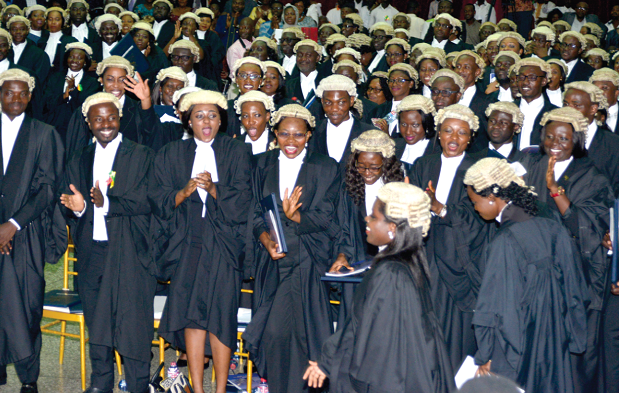LLB Programme
OVERVIEW
Law basically describes the systems, methods and rules employed to administer justice, foster mutual relations and facilitate development in society. Law as a discipline equips individuals with the requisite skills to think critically and apply the appropriate rules and regulations for the benefit of society. Law as a subject has numerous branches covering every conceivable facet of human life. The basic aspects include Contract Law, Legal Systems and Method, Criminal Law, Law of Torts and Constitutional Law. Other aspects include Immovable Property Law, Commercial Law, Public International Law, Company Law and Alternative Dispute Resolution. In recent years, the area has expanded to include Oil and Gas Law, Gender and the Law, International Human Rights Law and Intellectual Property Law. Future areas which promise interesting and interdisciplinary research include Cyber Law, AntiMoney Laundering and Patent Law. Students trained in law serve as lawyers, law lecturers, legislative drafters, law reporters, solicitors, research assistants and fellows, external board members of organizations and judges.
AIMS AND OBJECTIVES
• To provide the education, training and knowledge resources for the preparation of the legal minds and professionals of tomorrow.
• To develop talented individuals with fully developed theoretical and practical knowledge of the law as well as excellent leadership capabilities to provide quality service to all, in all spheres of endeavour and in all circumstances.
• To contribute to the realization of the University’s mission by creating a congenial environment in which scholarship, innovation, intellectual excellence and world class legal minds are developed to meet national global challenges
ASSESSMENT
Students are assessed through a combination of assignments, examinations, projects and performances.
TUITION METHOD
Lectures, class discussions, tutorials
CAREER PROSPECTS
University of Ghana’s LL.B holders serve effectively as professional lawyers upon completion of Ghana Law School. Besides, they could be Legal Research Assistants, or pursue a Master of Laws Programme in preparation for Academia. LL.B holders could also serve as Librarians in law schools. Furthermore, graduates could serve as Solicitors or Company Secretaries and offer Business Advisory Service to companies. They could also become Legislative Drafters in Parliament, work in the Judiciary and related public institutions.
ENTRY REQUIREMENTS
In determining eligibility for admission to Level 100 programmes, applicants’ aggregate score in three (3) core subjects (English, Mathematics and Social Studies) and three (3) elective subjects shall not exceed 24.
Regarding eligibility for admission into the Post-First Degree LL.B Programme at Level 200, applicants are required to have at least a Second Lower Class from a recognized University, pass an entrance examination as well as an interview.
Source : myshsrank / Johnny Doe








